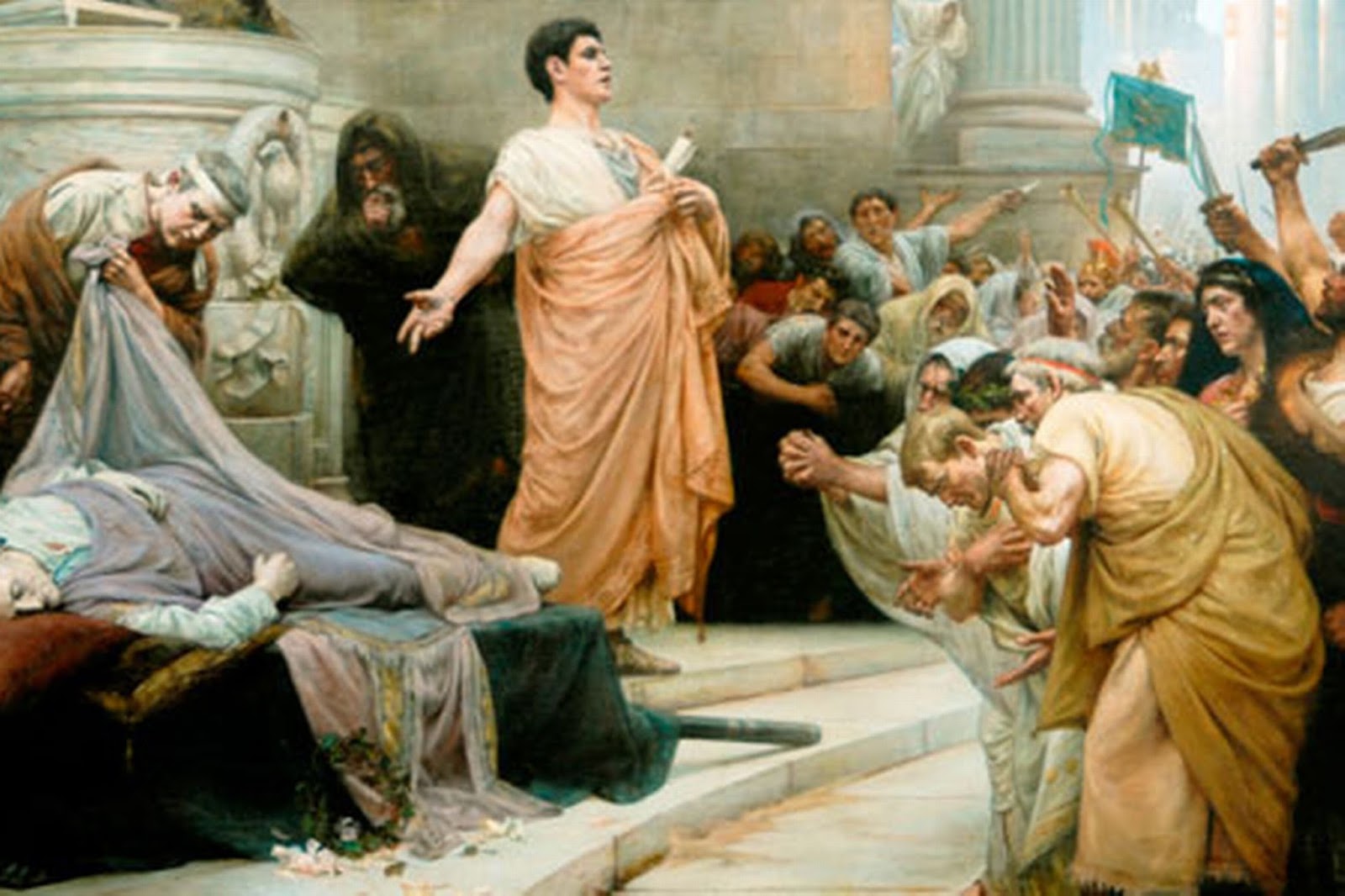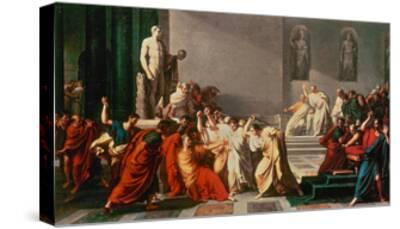
Their feud ending with the death of Clodius, struck down by a gladiator of Milo’s, a man called Birria. Thus did two of the most notorious political rabble-rousers of the late Republic, Clodius and Milo, do pitch battle with their gangs of slaves and gladiators in the 50’s BCE.

It resulted in ever more bloody consequences.


The use of retinues including, supporters, clients, slaves, and even gladiators was a conspicuous facet of political life. Both for their defense and to exert their political will. To counter this, individuals had increasing recourse to protection retinues. Long before the assassination of Julius Caesar, the political life of the Roman Republic can be characterized as being incredibly fractious, and often violent. Use them they did, and late Republican politics was dominated by acts of violence, perpetrated by the retinues and guards of Roman politicians. “What is the meaning of our retinues, what of our swords? Surely it would never be permitted to us to have them if we might never use them.” Thus, could Cicero play devil’s advocate when defending his notorious client, Milo: They offered an ‘offensive’ value that was frequently used by Romans to disrupt, intimidate, and kill. Then, as now, guards were not merely a defensive measure. So, Romans had long memories, and resistance to tyrants was a theme that was significant in the assassination of Julius Caesar.īodyguards Are ‘Offensive’ In So Many Ways Drawing of Ancient Roman Soldiers by Charles Toussaint Labadye after Nicolas Poussin, 1790, via the British Museum, Londonīodyguards were not only offensive to Republican values they carried an inherently offensive capability. Indeed, Brutus was himself celebrated as a descendant of his legendary ancestor (Lucius Junius Brutus) who had overthrown the arch tyrant and last king of Rome, Tarquinius Superbus. That had only been over 450 years previously. Tyrannicide was to an extent celebrated, a factor still alive in Caesar’s day. It’s simply hard to overestimate the resonance that the overthrow of the kings had on the Roman psyche. So fed up did Romans get with the early tyranny of their kings, that they shed them off and established a Republic. Tyrannicide: A Noble Tradition ‘Julius Caesar,’ Act III, Scene 1, the Assassination by William Holmes Sullivan, 1888, via Art UK It was a tool kings used not just for their protection but as a mechanism for the maintenance of power and the oppression of their own subjects. “ Well aware that his treachery and violence might form a precedent to his own disadvantage he employed a bodyguard.” Many of Rome’s early kings were characterized as having guards: It was a sentiment that was deeply alive in Roman consciousness and which even formed part of Rome’s very foundation story. “ All these examples are contained under the same universal proposition, that one who is aiming at tyranny asks for a bodyguard.” This sentiment had a powerful tradition in the Graeco-Roman world: Seen as the hallmark of kings and tyrants, a bodyguard was a cast-iron insignia of tyrannical oppression. Guards As The Insignia Of Kings And Tyrants Speculum Romanae Magnicentiae: Romulus and Remus, 1552, via The Metropolitan Museum of Art, New York It was an afront to Republican sensibilities and it signaled several red-flag messages that would make any good Roman nervous and could make some hostile. Deep within the Roman cultural psyche, being attended by guards could in some contexts be highly problematic. To Republican Romans, a bodyguard was actually an incendiary issue that paradoxically drew criticism and danger for the employer. Roman political and public life became so violent as to require protection retinues and yet, bodyguards were themselves seen as a key facet of oppression and tyranny.

So, what is the bodyguard paradox? Well, it’s namely this. It was no act of ill-fated hubris this was a Roman leader seeking to negotiate what we might call the ‘bodyguard paradox.’ When viewed through the prism of bodyguards and personal protection, the assassination of Julius Caesar takes on a fascinating and often overlooked aspect. Yet this was a deliberate act by a very pragmatic politician, soldier, and genius. In the deadly world of Roman politics, this was an act so seemingly reckless as to defy belief. Please check your inbox to activate your subscription Thank you!


 0 kommentar(er)
0 kommentar(er)
